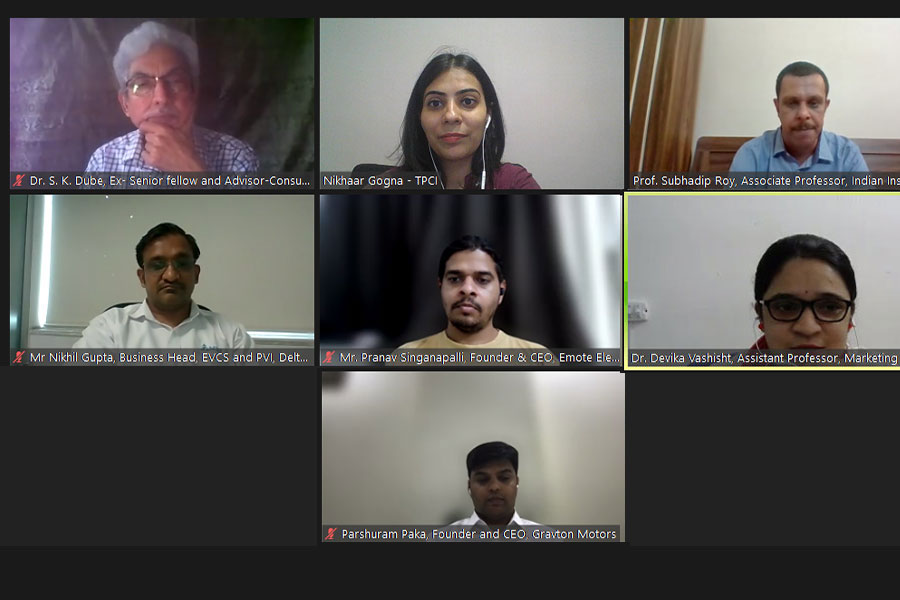Steering the EV Revolution in India
Trade Promotion Council of India (TPCI) organized a webinar on ‘Steering the EV Revolution in India’ on 26th April, 2022 (Tuesday), 3:00 pm. This webinar deliberated on the current EV environment in the country, its growth prospects and how India can emerge as an EV manufacturing and export hub.

Trade Promotion Council of India (TPCI) organized a webinar on ‘Steering the EV Revolution in India’ on 26th April, 2022 (Tuesday), 3:00 pm. This webinar deliberated on the current EV environment in the country, its growth prospects and how India can emerge as an EV manufacturing and export hub.
Industry estimates project that the EV market in India is expected to grow at an estimated CAGR of 90% from 2021 to 2030 and be worth more than US$ 150 billion by 2030, according to a report by RBSA Advisors. Bolstered by these projections, investors are showing an interest in this segment. Last year, Ola electric raised US$ 200 million from investors in a fresh funding round, while TPG Rise Climate and Abu Dhabi’s ADQ also agreed to invest close to $1 billion in Tata Motors’s upcoming EV subsidiary.
To help the EV revolution gather more steam in the country, the Government of India is moving towards accelerated adoption of electric vehicles (EVs) by 2030. It is supporting the sector with policies like transitioning at least 30% vehicle sales to EV by 2030, Faster Adoption and Manufacturing of Hybrid and Electric Vehicles (FAME) & production-linked incentive (PLI) scheme for EVs.
Government think-tank, NITI Aayog has estimated that such policies are expected to push EV penetration to 30% for private cars, 70% for commercial cars, 40% for buses and 80% for two wheelers (2Ws) and three wheelers (3Ws) by 2030.
The road to the electrification of the Indian automobile industry is a bumpy one. Impediments in this journey include a feeble charging infrastructure, the soaring cost of batteries, a lack of large-scale domestic manufacturing ecosystem and high import dependence for raw materials, apprehensions about the performance of the vehicle, and customer inertia.
When one looks at EV adoption in the past, the numbers have been low. Reports suggest that in India, EV sales accounted for barely 1.3% of total automobile sales during 2020-21. Data collated from government’s Vahan dashboard by Federation of Automotive Dealers Association added electric three wheelers registered a blistering 101.74% growth in sales in fiscal 2022 in India notching up a record 45.83% share in the overall segment during the year.
The million dollar question that arises now is that will the sector be able to pick up pace in tune with its stated potential and deliver desired economic benefits to India?
The panellists discussed:
- The evolution of EV ecosystem in India
- The policy landscape to promote the proliferation of EV landscape in the country
- Are EVs as eco-friendly as they are made out to be?
- Making India into a hub for EV production and exports
- Ev adoption from a consumer behaviour perspective
The speakers for the session were:
- Pranav Singanapalli, Founder & CEO, Emote Electric
- Mr Nikhil Gupta,Business Head, EVCS and PVI, Delta Electronics India
- Subhadip Roy,Associate Professor, Indian Institute of Management Ahmedabad
- Devika Vashisht, Assistant Professor, Marketing Management, Indian Institute of Management Sirmaur
- S. K. Dube, Project Advisor-TERI and Ex-General Manager, NTPC Limited
- Parshuram Paka, Founder and CEO, Gravton Motors
Nikhaar Gogna from TPCI moderated the session.
